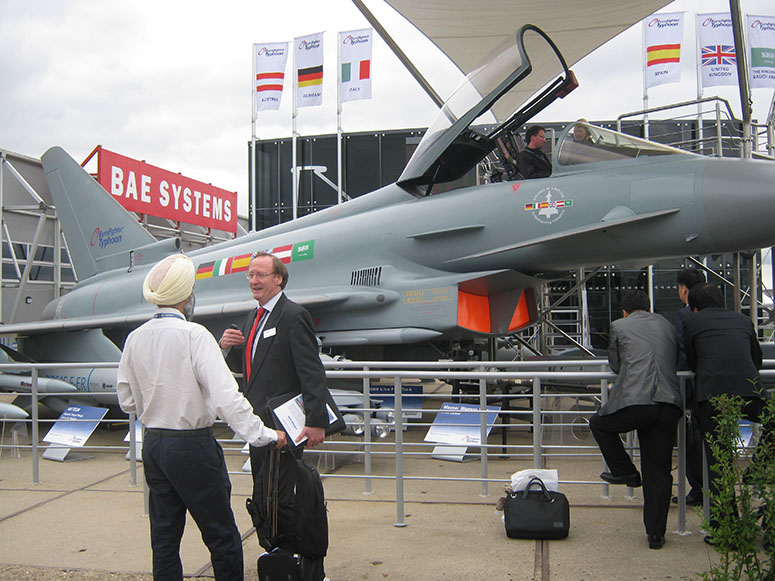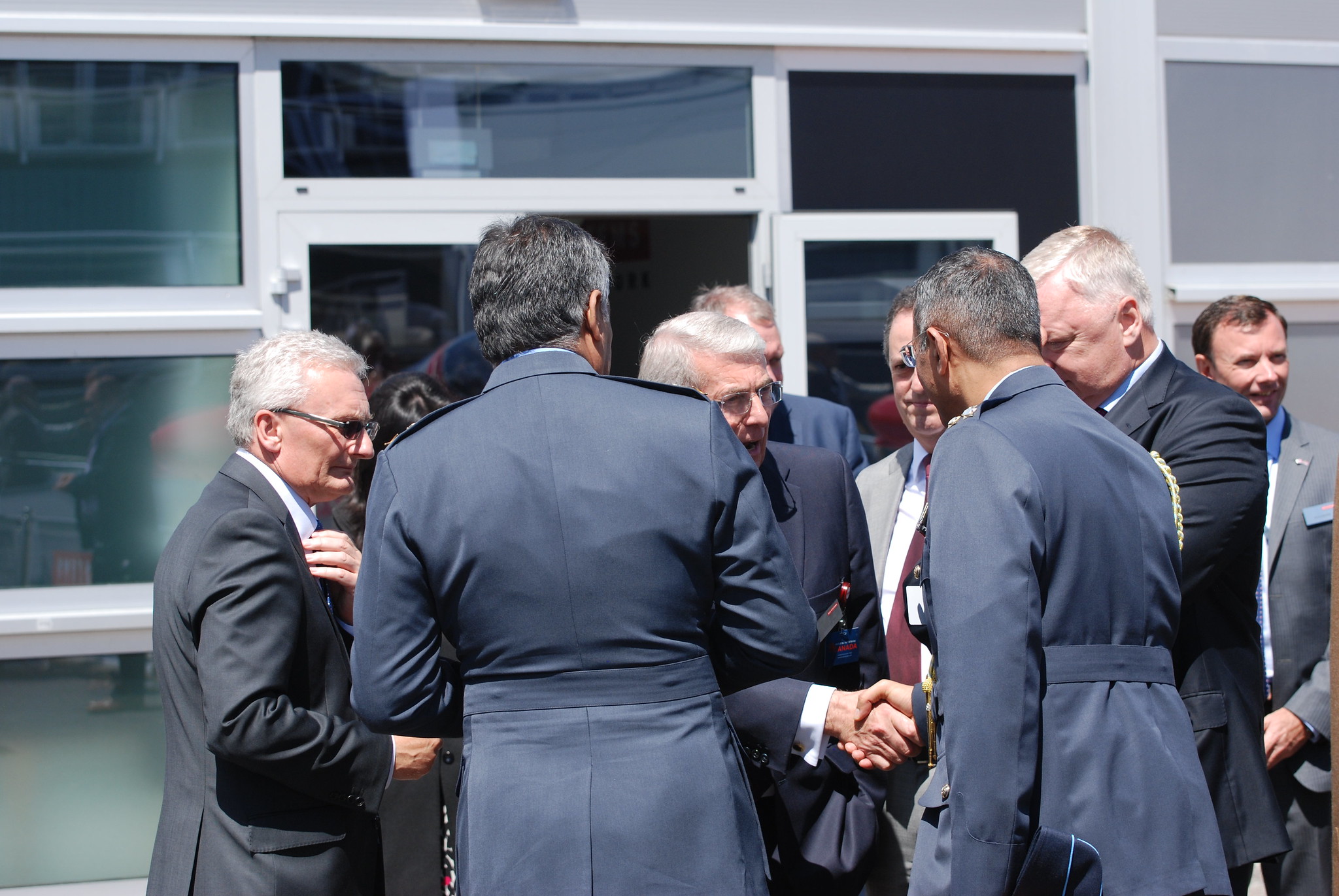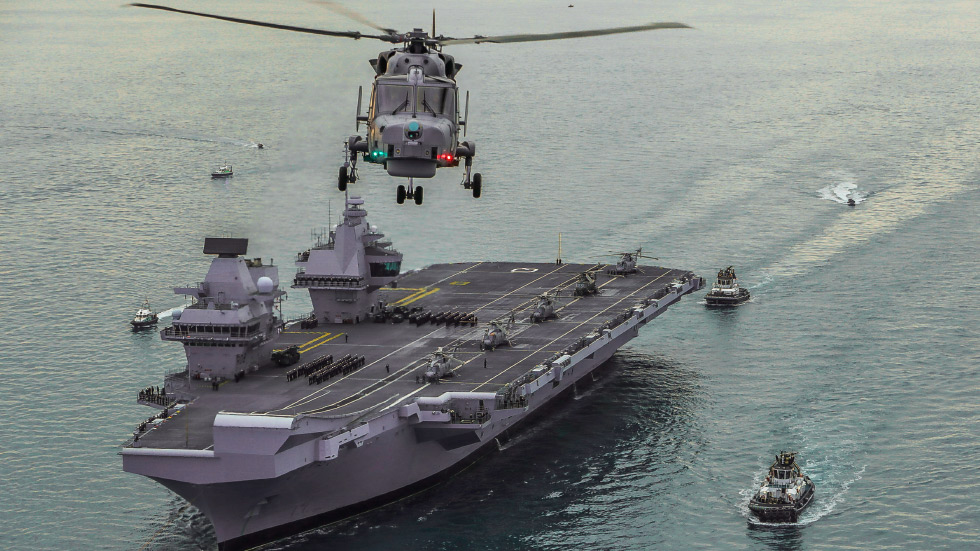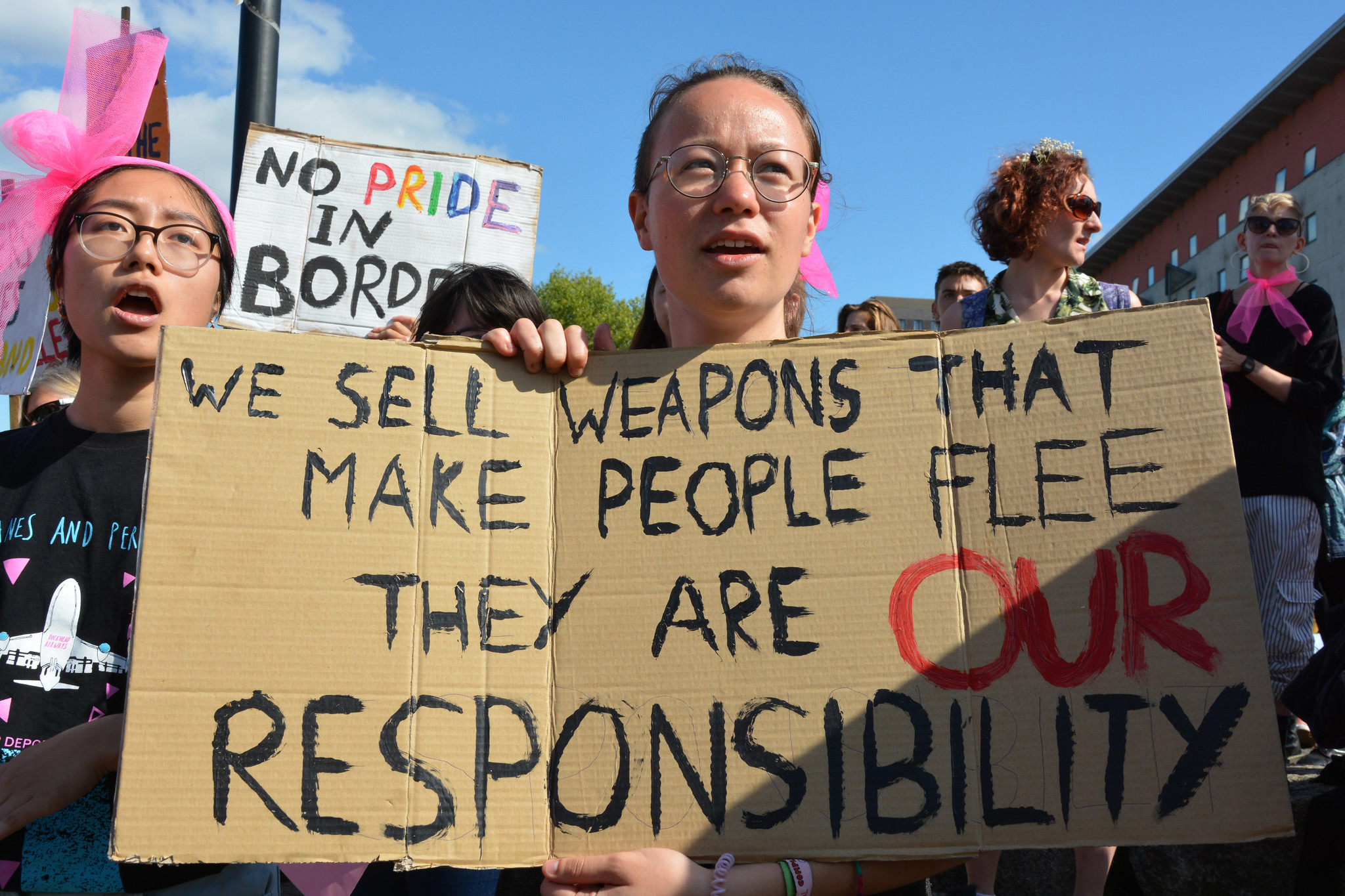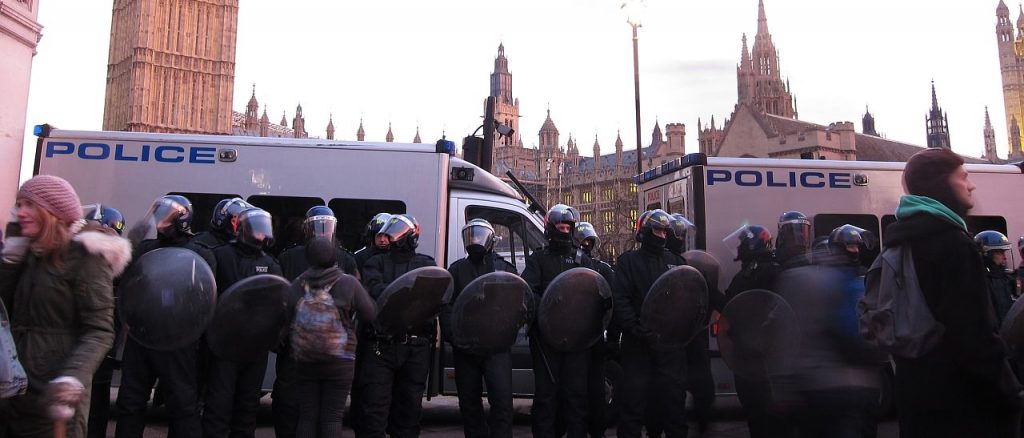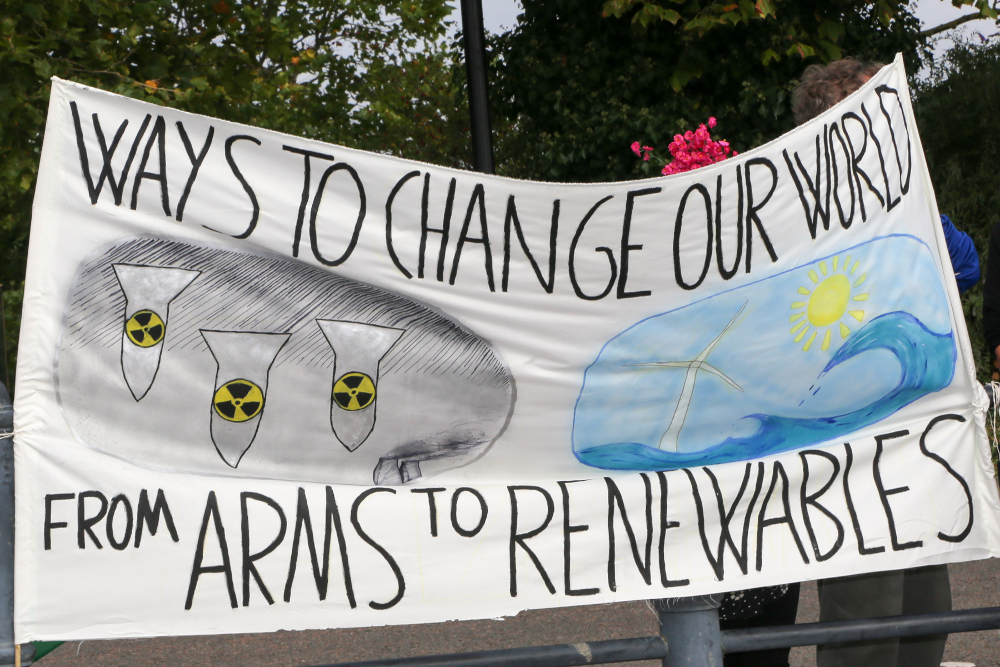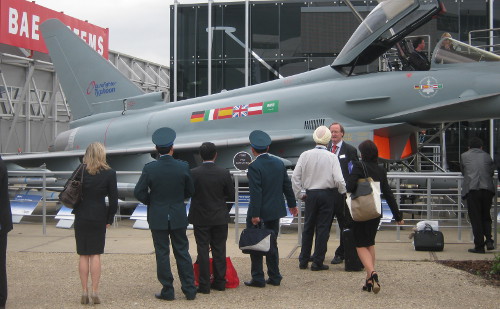The arms industry is a multi-billion pound industry that relies on extensive political and economic support from complicit governments.
Arms companies rely on secrecy. We aim to expose the deadly consequences of this terrible trade, and the role of arms dealing governments like the UK in promoting it.
This section of the website will explore what we mean by the arms industry, the ways that it has gained so much power, the ways that it uses that power, and the different challenges that it presents for campaigners.

